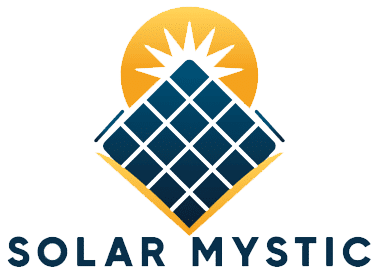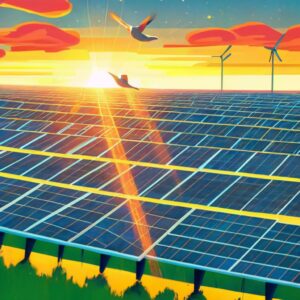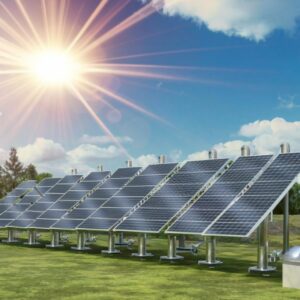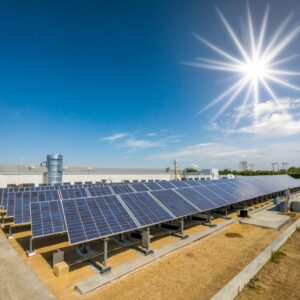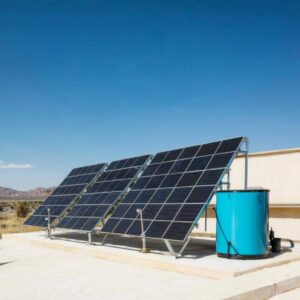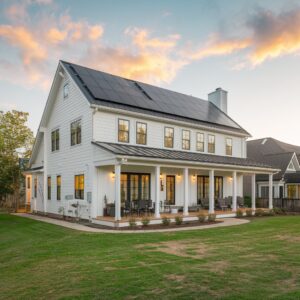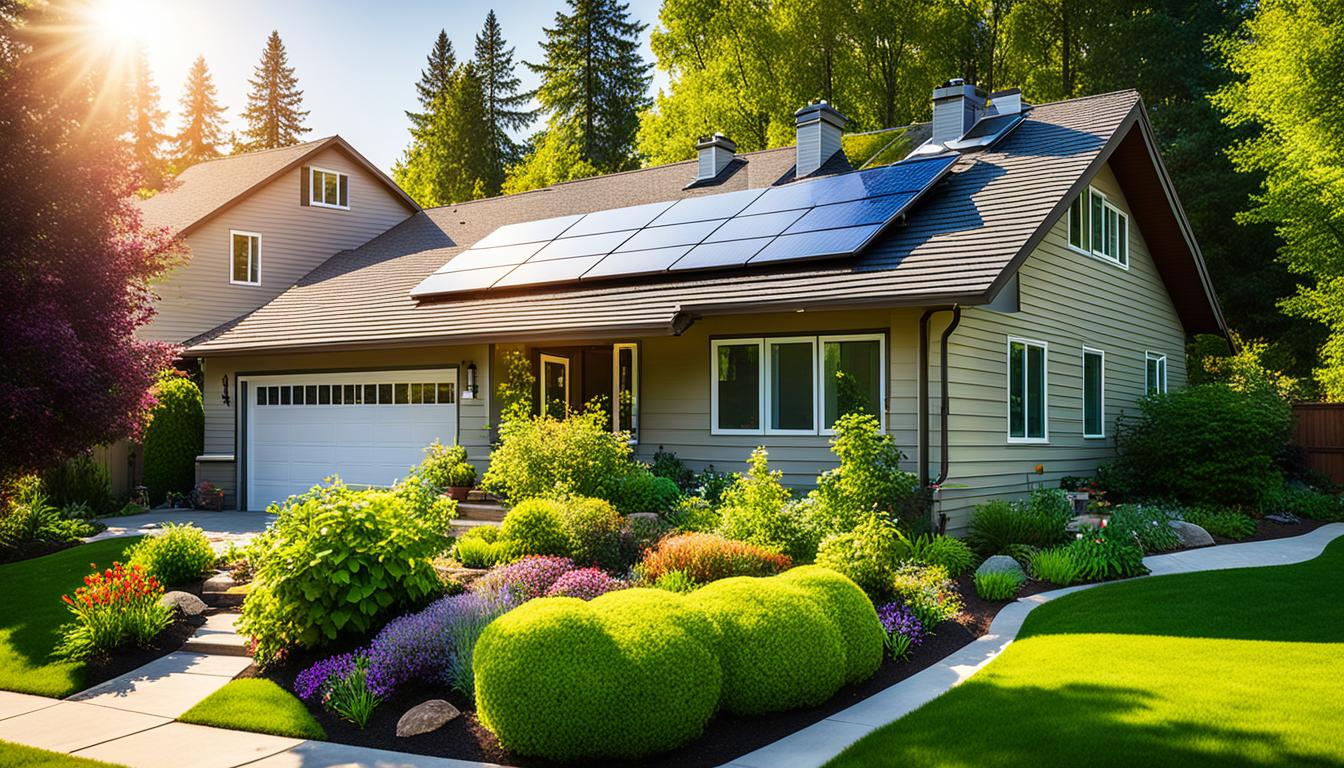
Thinking of using the sun’s power for your energy needs? Solar power is becoming very popular in the U.S. It’s a renewable and eco-friendly way to power your home. You may want to look into solar panels, community solar, or how to finance solar energy. It’s important to know the basics to make the best choices for you.
Key Takeaways:
- Solar energy systems use technologies like photovoltaics (PV) to turn sunlight into electricity.
- When thinking about solar panels, check if your roof is good for it. Look at tree cover, roof size, and slope.
- If your roof doesn’t work, community solar programs let you still use solar energy.
- You can choose how to pay for solar, like buying, getting a loan, or leasing.
- It’s important to know about the savings and incentives with solar power. Plus, making your home more energy efficient matters too.
Choosing the Right Solar Installer and Assessing Solar Suitability
Before you buy solar, it’s key to pick a good solar installer. They should be qualified and licensed. Start by looking online and asking people you know who’ve gotten solar. Comparing different installers can help you find the best one for you.
Check if your roof is a good fit for solar panels. It’s best to talk with a solar installer, a roofer, or a structural engineer. They’ll look at your roof’s health, size, which way it faces, and any shading. They’ll tell you if it’s ready for solar. Also, think about your roof’s age and how much money you might save to make a smart choice.
Also, know how much electricity your home uses. Look at old energy bills or get a home energy audit. This will show how much power you need. It will help you find out the right solar size for your home.
Think about how to pay for solar. You can buy the system, get a solar loan, or do a lease or PPA. Each way has good and bad points. Choose what works best for your money and situation.
Every area has rules about solar. You need permits and inspections. The time it takes to get these can vary by place. Your solar installer will help you through this. They’ll make sure you follow all the rules. To keep up with solar news and help in your area, use the Database of State Incentives for Renewables & Efficiency (DSIRE).
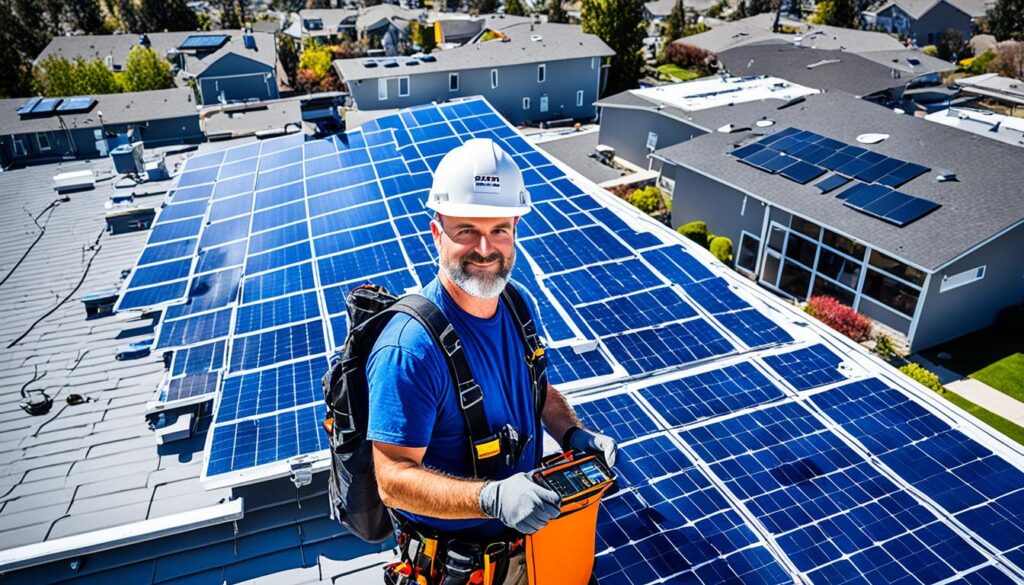
Picking a good installer and making sure your home is a good fit for solar is important. They’ll get you started on using solar power. You’ll see lots of good things from using clean, lasting energy.
| Key Factors to Consider | What to Evaluate |
|---|---|
| Roof Condition | Age, surface area, and structural integrity |
| Solar Potential | Orientation, shading, and available sunlight |
| Electricity Needs | Review previous energy bills and consider a home energy audit |
| Finance Options | Consider purchasing, solar loans, leases, or PPAs |
| Permits and Inspections | Comply with local regulations and obtain necessary permissions |
Understanding Solar Power Generation and System Design
Solar power starts with solar panels collecting sunlight. These panels change sunlight into DC power. To use it in our houses, the DC power changes to AC power through an inverter. Then, this power can run our devices.
If you want to use only the sun’s power in your home, think about using batteries too. They save extra power for nights or bad weather. This way, you always have power.
You can also choose solar shingles instead of traditional panels. Solar shingles look nice and fit well with your house’s style.
When you think about solar power, knowing how much sun you get is key. Things like where you live and your roof’s shape matter. So does the shade your house gets. Looking at the weather and your energy use helps too.
Setting up a solar home needs good planning. Think about your roof’s size and shape. Look for things that might block the sun. It’s good to have a system that can make 1 kilowatt for every 1,000 square feet of your home.
